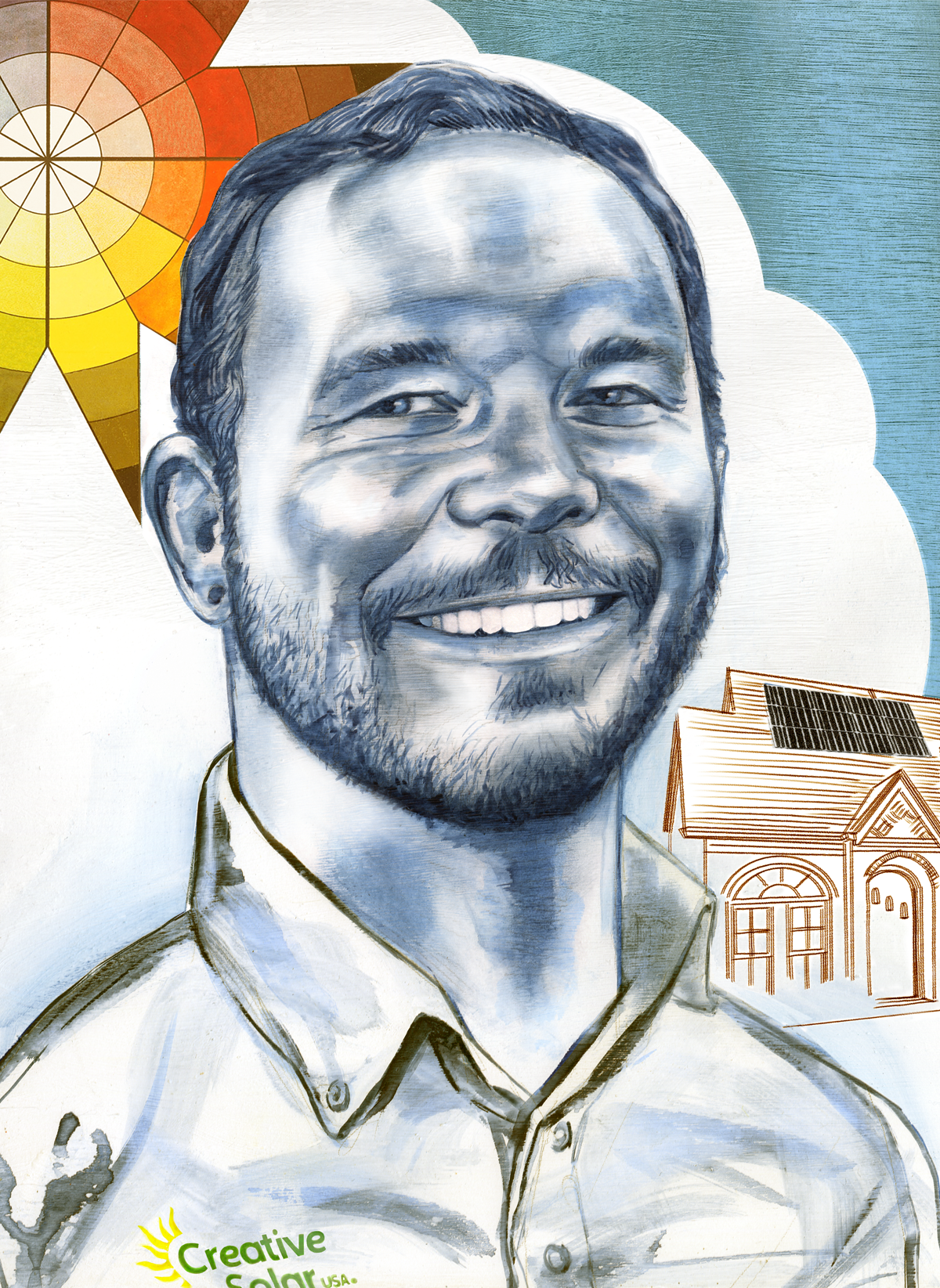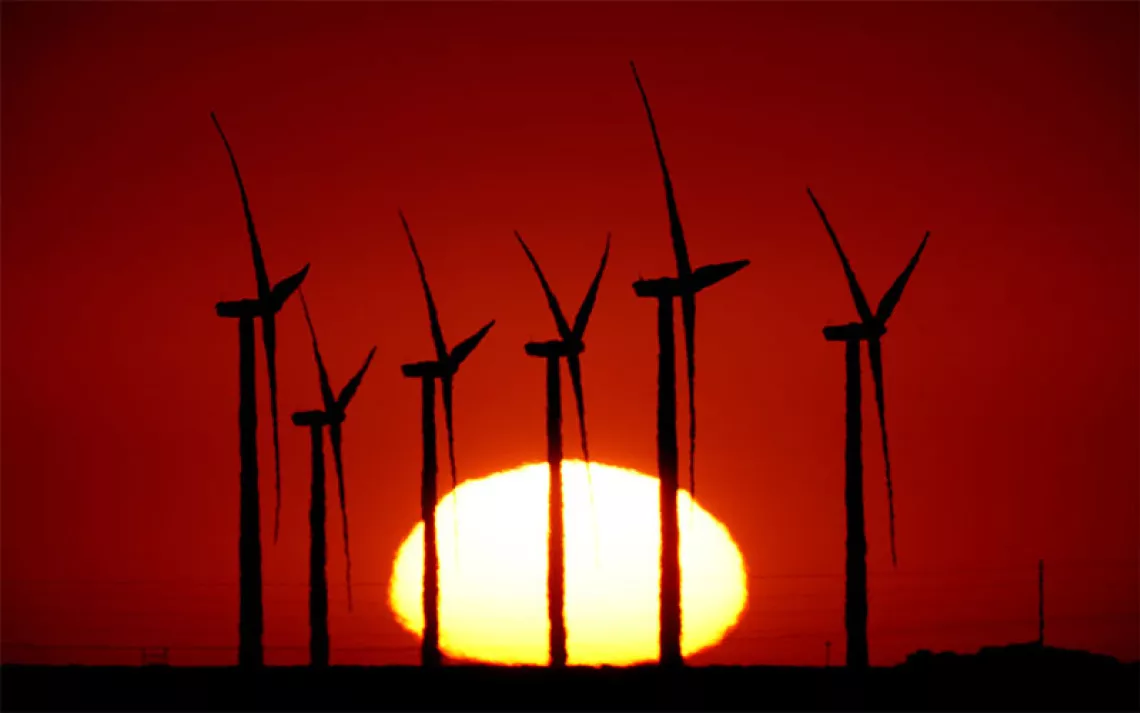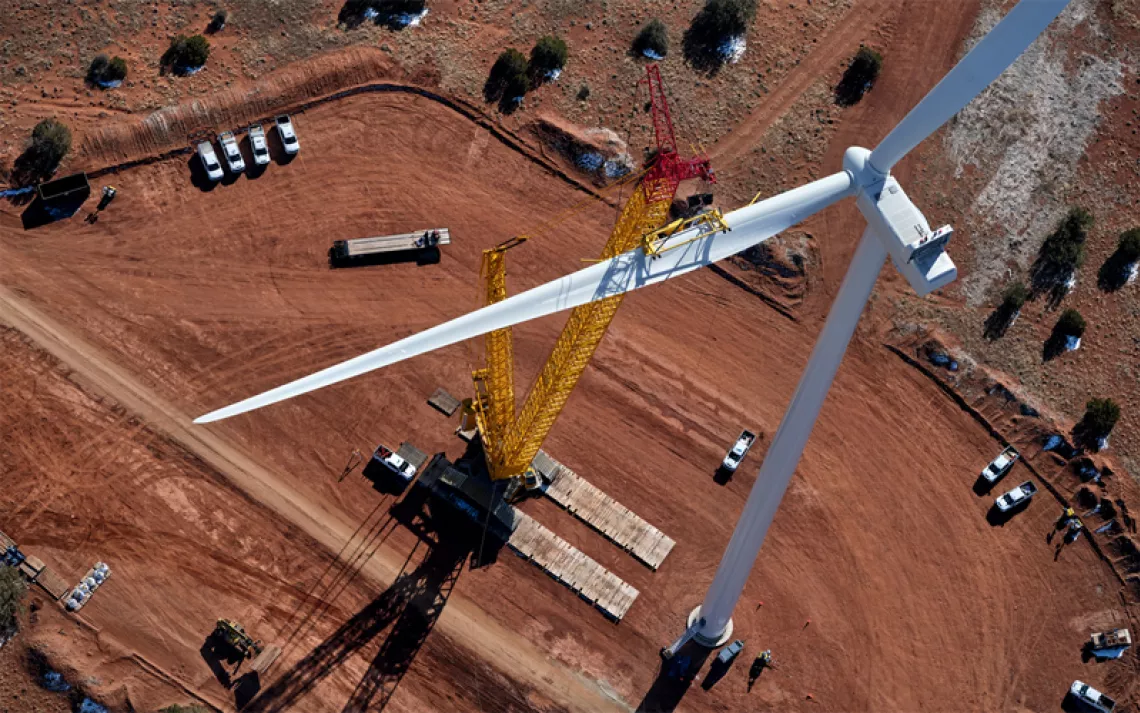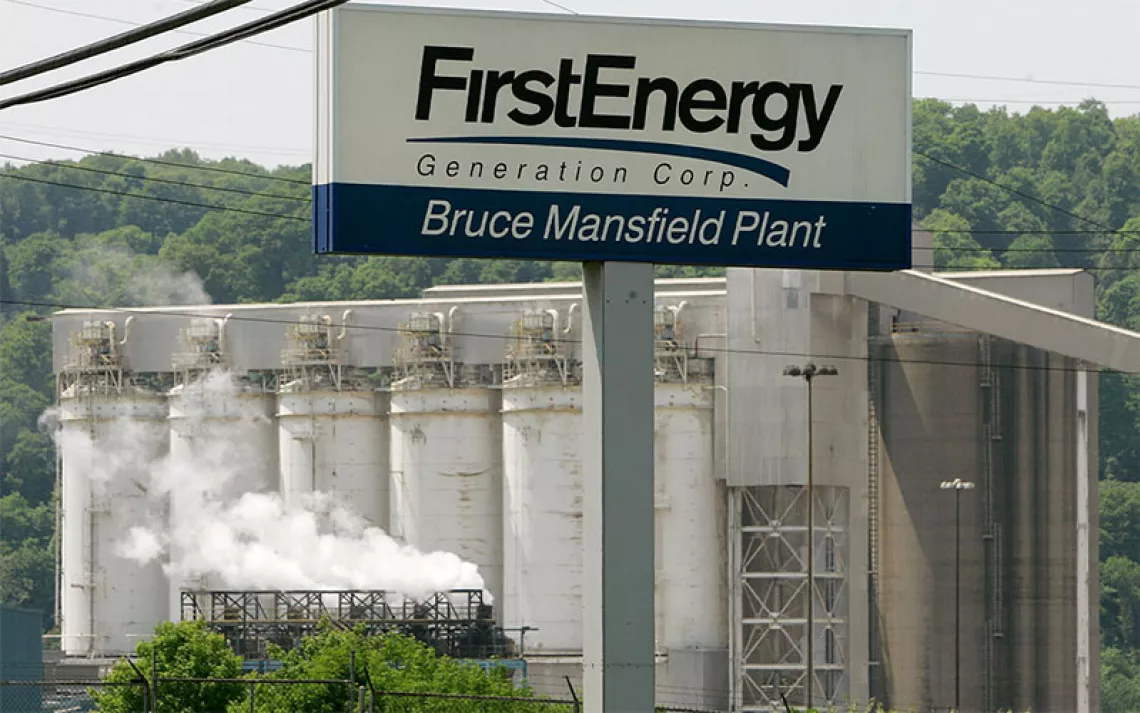Georgia Solar Company Bets Big on Batteries
Lacking other incentives, rooftop solar customers need to bank their joules

Seth Gunning, sales director at Creative Solar USA | Illustration by Joe Morse
When you're organizing for change, an important principle is that you should always be trying to organize yourself out of a position. During my time as a Beyond Coal organizer with the Sierra Club in Georgia, we got my utility company, Cobb Electric Membership Corporation, to cancel plans to build two new coal-fired power plants. We worked to elect new leadership to the cooperative and turn the utility into a solar energy leader. After that, I realized it was time to move on.
Since then, Cobb Electric has become a trailblazer in the adoption of renewable energy. The company I work for, Creative Solar, of Kennesaw, Georgia, built one of the largest solar and battery storage systems in the state on Cobb's campus.
I didn't have a super smooth transition to the private sector. I took some time deciding what I was going to do. I hiked the Appalachian Trail—well, about half the Appalachian Trail—before I came back to Atlanta. Then I started having conversations with solar-company owners. Even though I had no business experience whatsoever, I had worked with these folks, helping to advocate for solar and build the market. I told them, "I want to start on the roof. I want to learn the business from the ground up—or the roof down."
It wasn't easy in the hot Georgia summers or the frigid winters—you could barely feel your hands sometimes. But it was rewarding. Growing up, I spent most of my summers with my grandfather, who ran a furniture business in southwest Virginia. I learned from all that time I spent plugging screw holes and cutting the same little design a hundred times. So I had the skills to excel at installation, to take pride in a high level of workmanship.
I'm now a salesperson and manage our sales team. The company is 13 years old, and I've been here for almost five. Now we have 15 installers doing several hundred projects a year—everything from four-kilowatt systems on homes to four-megawatt systems on commercial buildings.
The Georgia solar business is different than in, say, California or Minnesota. Until recently, Georgia utilities weren't required to offer net metering, where the utility gives you credit for the excess electricity your solar array puts on the grid during the day. That's why we install so many batteries: Without them, you could only offset maybe 35 percent of your electricity consumption and only during daylight hours. To offset more than that—say, 85 percent of your electricity consumption—you have to couple it with energy storage.
Batteries really opened up the solar market in Georgia. We install a lot of Tesla Powerwalls, which are the most popular and actually one of the more affordable options. If Tesla has done any good in the solar industry, it's popularizing the benefits of battery storage so folks in states like ours can get the full value of the solar energy they're producing on the roof.
In January 2020, Georgia's largest utility, Georgia Power, started offering limited net metering to its customers. But we're finding that people still want batteries for resiliency, to get through disasters. Hurricane Zeta came through in October and cut off power for a week and a half, two weeks. And as people started working from home more because of COVID, they got to be more sensitive to even small power outages that interrupt important Zoom calls. It's also important for hospitals and doctors' offices that need to keep vaccines at super cold temperatures.
I tend not to really talk about climate that much to our clients. People are looking at solar to save money on their utility bills. But there have been times when, you know, in the southern part of the state, working with people in agriculture especially, the topic comes up.
These are folks that, by the looks of them, you would not expect to be concerned about climate. But when we start the conversation, they'll share that they're also interested in solar because they've got kids and grandkids, and they're concerned about what the future is going to look like for them. They want to pass their businesses on, and they want to make sure the world is going to be stable enough to do that.
This article appeared in the March/April edition with the headline "From the Roof Down."
This article was funded by the Sierra Club’s Beyond Coal campaign.
 The Magazine of The Sierra Club
The Magazine of The Sierra Club



